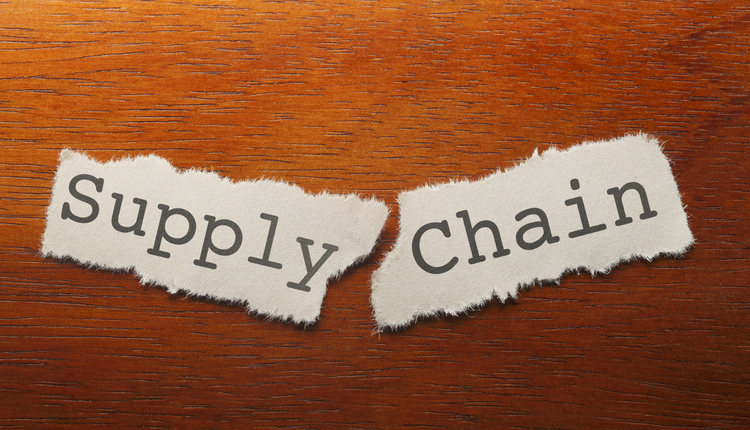Conducting regular daily business can be daunting enough, but with businesses transacting more with suppliers, distributors, and clients around the world, it has become even more baffling and costly. Politically driven events such as Brexit, trade wars, and oil production can upset a supply chain without a business even realizing it until it’s too late.
As logisticians, we are taught to mitigate risks, and for many of us, we do just that. But because of the speed of news and announcements in our increasingly connected world, it has become even more difficult to grasp and react to political impacts to supply chains in a timely manner. However, before one can react to the events that are currently shaping our world, one should have a general understanding of the global political environment.
Brexit and the European Union
In June 2016, the United Kingdom (UK) voted to leave the European Union (EU). Triggering Article 50 of the Treaty on European Union (TEU) to begin its withdrawal on March 29, 2017, time started ticking for the UK to plan their leave two years from that date. However, politics seemed to overtake planning. Agreements with the EU failed to pass the British Parliament, and what planning seemed to take place was done primarily by individual shippers and logistics and transportation providers. For the most part, much of this planning involved a combination of stock-piling inventory and moving distribution facilities to the mainland of Europe.
As March 29, 2019 approached, it was evident the country was not prepared and was bracing for a no-deal Brexit. Ultimately, an extension was provided until October 31, 2019, and the prime minister of the UK announced her resignation soon afterwards.
Since then, politics have remained the focal point, but some supply chain achievements have been made. For example, the UK Department for Transport announced that a reciprocal arrangement with the EU to maintain air traffic rights after Brexit will continue through October 2020. This means that the UK and EU airlines can continue to fly between any pair of points allowed today and will be able to make further stops within the locations without embarking or disembarking passengers. Cargo operators will be able to make a stop in either territory and then fly on to an external final destination. For this period, the UK will also remain a member state of the European Union Aviation Safety Agency (EASA).
Despite this achievement, the British International Freight Association (BIFA) has stated that all modes of cargo transport will be affected, with over-the-road the most significantly impacted. As the primary means of transport, the UK is bracing itself for slowdowns in domestic deliveries.
Global Trade Wars
The US government’s global trade policies have always been at the forefront of American politics. However, actual tariffs and theoretical ones have created — and are still creating — tremendous uncertainty around global trade. A random tweet can send shippers in a swoon and logistics providers in a mad dash to find capacity at a reasonable rate before a tariff is actually enacted.
For example, on August 23 of this year, President Trump took to Twitter, ordering American companies to “immediately start looking for an alternative to China” and build more products in the US.
How best to describe such an environment? Uncertainty seems to be a mild description for shippers and logistics providers alike.
Although most of the focus has been on China, the EU, Canada, and Mexico, many other countries have felt the US tariff sting. Many of these countries have reciprocated in kind by introducing their own tariffs on the US.
The results of these tariffs have been detrimental to shippers and their customers. Rising costs, some passed to customers while others have been absorbed, have strained supply chains, causing some shippers to relocate manufacturing to Southeast Asia, other regions of Europe, back to the US, or to some other location.
Meanwhile, front-loading of inventory ahead of actual or threatened tariffs has resulted in bulging US warehouses and declines in regularly scheduled inventory replenishment.
A number of questions are being raised in the press and among analysts: Will these trade wars result in a decline in international trade? Will supply chains become more regional and/or localized? This uncertainty in the market makes it more difficult for shippers to adjust supply chains from reactive to proactive ones.
Global Oil Supply and Production
The Middle East has been a volatile region to conduct business for decades. The epicenter for global oil trade, it is a region of political and economic turmoil as it works to lessen its dependence on oil revenues and build up its infrastructure. In addition, the threats of terrorism, Israel’s precarious position in the region, and Iran’s potential nuclear capabilities leave no room for easy business dealings.
The recent drone attacks on the world’s largest oil exporter, Saudi Arabia, suspended oil output, crippling well over half of the country’s daily production. The result was felt globally as oil prices shot up in response.
The unease and uncertainty in this particular region are observed in an important trade route, the Strait of Hormuz, located between Oman and Iran. It connects the Persian Gulf with the Gulf of Oman and the Arabian Sea. The Strait of Hormuz is the world's most important oil channel because of the large volumes of oil that flow through the strait. In 2018, its daily oil flow averaged 21 million barrels per day, or the equivalent of about 21% of global petroleum liquids consumption.
Iran has periodically threatened to close the strait to enemy shipping, while the United States and its allies have pledged to keep it open and maintain freedom of navigation, by force if necessary. The resulting unease and uncertainty has made it not only difficult for the transport of oil but also for the region as a whole, leaving it as a difficult place to conduct business.
The Outlook
We live in a global environment that is rapidly changing. Managing expectations is difficult, and managing a global supply chain is even more difficult. The news can be confusing and can come at you from different platforms, including social media, the television, mobile, or person-to-person. How does one manage all of this news? How does one build a proactive supply chain? How does one manage costs so as not to burden customers any further than necessary? These are just a few questions that shippers and supply chain managers should ask themselves on a regular basis. It’s easy for us to say that supply chains need to be adaptable, but to actually put into practice is proving difficult in today’s environment.
John Haber is founder and CEO, Spend Management Experts. He can be reached at solutions@spendmgmt.com.
This article originally appeared in the Fall, 2019 issue of PARCEL.



















